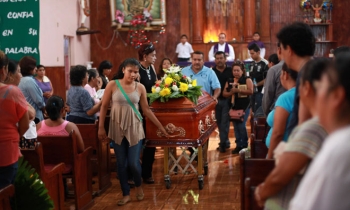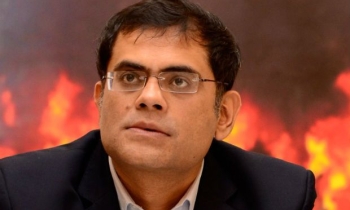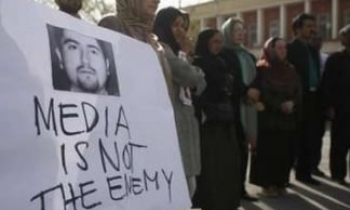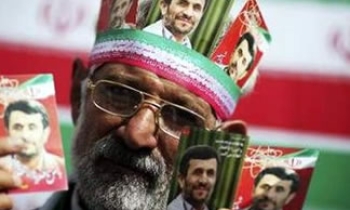The Al Qaeda in Mesopotamia has taken credit for Monday's bombing at the Al Arabiya office in Baghdad on a website it often uses to communicate, suggesting the attack was in response to a broadcast about the influence of the extremist group. The programme was called “Creation of Death.” “Wait for more,” the group’s statement said.
The capabilities of the group, which is homegrown but is believed to have some foreign leadership, have diminished in recent months with the killing of many top leaders, but it is still able to regularly carry out suicide attacks against institutions of Iraq’s nascent democracy, the New York Times reported.
The attack killed four of the satellite news channel’s support staff. A suicide bomber had detonated a vehicle in front of the bureau at 9:25 a.m., leaving a massive crater. Four employees were killed—three security guards and a cleaning woman. Sixteen other people were wounded. Al Arabiya reported that the site was immediately surrounded by security forces following the explosion.
Baghdad security spokesman Major General Qassim Atta al-Moussawi told Agence France-Presse (AFP) that these are “the methods of al-Qaeda.” The head of the army’s explosives unit, Major General Jihad al-Jaabari told Al Arabiya that the car was carrying about 282 pounds (128 kilograms) of ammonium nitrate.
"This attack comes after clear threats from terrorists that they intend to target media," said Aidan White, International Federation of Journalists (CPJ) General Secretary. "It is a shocking incident that reinforces the concern over the dangers faced by journalists and media. More must be done to ensure the safety of all media personnel."The attack occurred a month after officials warned that insurgents opposed to the channel, which is funded from Saudi Arabia, planned to strike against the network.
“Today’s (Monday's) attack on Al Arabiya’s offices is a reminder that journalists in Iraq continue to operate in a very dangerous environment,” said Mohamed Abdel Dayem, Middle East and North Africa Coordinator for the New York-based Committee to Protect Journalists (CPJ). “We call on the Iraqi authorities to investigate this crime and hold the perpetrators to account.”
“It is unacceptable that journalists are the target of acts of such barbarity,” Paris-based Reporters sans Frontières (RSF) said. “We urge to the authorities to do what is necessary to guarantee the safety of journalists at a time of violence in which they could be singled out.”
"Today's (Monday's) attack on Al Arabiya was designed to spread terror among journalists and ordinary citizens in Iraq," said Joe Stork, deputy Middle East director at Human Rights Watch. "The government needs to ensure that journalists can freely go about their business."
"This attack is a further challenge to the authorities," said White. "Previous killings of journalists have not been investigated or have been dealt with casually, creating an intolerable regime of impunity. The government must change its approach and ensure that the killers of journalists and media staff will be brought to justice."
Al Arabiya has suffered multiple assaults since it opened its Baghdad bureau in September 2003. On June 25, the broadcaster shut down its Baghdad office after receiving an anonymous tip that there were plans to attack the office. It re-opened shortly after. Atwar Bahjat, an Al Arabiya correspondent and a 2006 CPJ International Press Freedom awardee, was murdered near Samarra in February 2006, along with her crew, cameraman Khaled Mahmoud al-Falahi and engineer Adnan Khairallah. In 2008, the news channel’s Baghdad bureau chief, Jawad Hattab, escaped a car bomb attack. In 2004 three journalists from Al Arabiya—Ali al-Khatib, Ali Abdel Aziz, Mazen al-Tumeizi—were killed by American fire.









